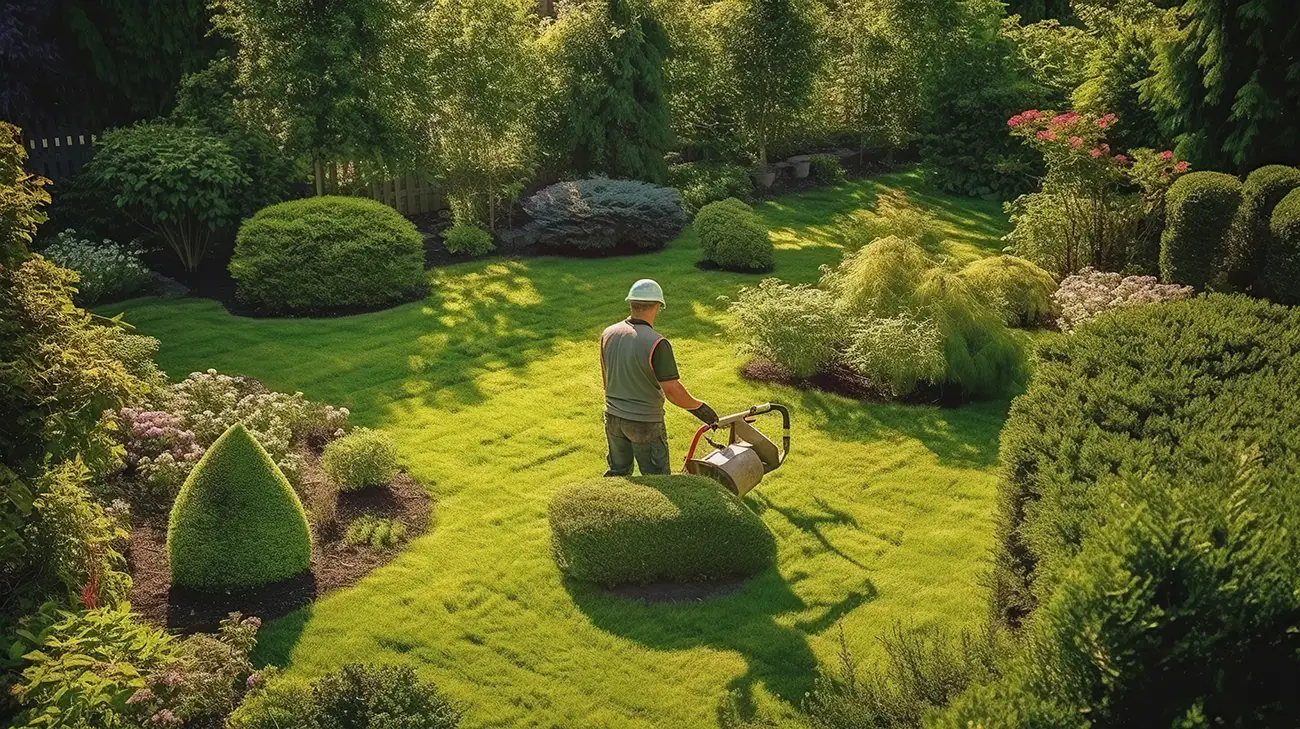
Care for outdoor spaces — and build a rewarding hands-on career.
Horticulturalist
As a Horticulturalist, you’ll use expert plant knowledge to care for landscapes, gardens, green walls and indoor plantings. You’ll create healthy environments people enjoy, while working with nature every day.

Salary Range
$30 – $38/hour (Rates vary depending on experience, role type, location and any specialist skills)

Recommended Training
Certificate III in Parks and Gardens

Job Listing
Browse current job openings and take the next step in your landscaping career.
Job Overview
Horticulturalists are plant experts who maintain healthy, vibrant landscapes across homes, commercial properties, parks and green infrastructure. You might be caring for rooftop gardens, pruning street trees, managing indoor plants, or helping install softscapes on construction sites. This is a hands-on role focused on plant health, soil care, pest control, and site presentation. Some horticulturalists work solo, while others lead teams, advise clients, or specialise in areas like turf, indoor greenery or vertical gardens. It’s a great fit for people who enjoy practical work, care about the environment, and take pride in growing and maintaining beautiful green spaces

Tasks & Duties
Prune, fertilise, water and monitor trees, shrubs, and plants
Identify and treat pests or diseases using safe methods (ACDC licence may be required)
Mow, aerate and care for lawns and turf areas
Plant new species and apply mulch to support growth and soil health
Maintain indoor plants with watering, cleaning and rotation (in relevant roles)
Support soft landscaping work like garden bed setup, plant layout, or irrigation adjustments
Provide plant care advice to clients or property managers
Supervise apprentices or junior crew members (in senior roles)
Record treatments, schedules or customer requests digitally or on paper
How to Become a Horticulturalist
You can get into this role with a traineeship, entry-level work, or by completing a horticulture qualification. Many people start hands-on and learn as they go — but formal training builds your skills, opens up job options, and sets you up for long-term growth in the industry.
Delivered through a TAFE or Registered Training Organisation (RTO), this course combines full-time, hands-on work with structured study over 3–4 years. You’ll build skills in plant care, turf management, pruning, pest control, and maintaining green spaces — all while learning on real job sites with professional guidance.
Common Training Pathways:
- Certificate II in Horticulture (AHC20422) A practical entry-level course covering plant basics, soils, pruning, pest control and safety. Suitable for school-based training or those starting out in garden maintenance or nursery roles.
- Certificate III in Horticulture (AHC30722) The core trade qualification for professional horticulturists. Includes plant care, pest and disease management, turf, soft landscaping and fertiliser use — often completed as a full-time course or through a traineeship.
- Certificate IV in Horticulture (AHC40422) Ideal for experienced workers ready to take on more complex planning, supervisory or technical roles in the industry.
- Diploma of Horticulture Management (AHC50422) Designed for those managing teams, projects or operations. Focuses on business skills, advanced plant science, and horticulture leadership across commercial and public spaces.
- Certificate III or IV in Protected Horticulture For roles focused on greenhouses, vertical farms, or indoor plant production.
- Certificate IV or Diploma of Production Horticulture For careers in food-growing, orchard management, or large-scale crop care.
- Certificate I in Horticulture A pre-vocational introduction to the industry, often used for supported learning or career exploration
Career Progression & Pathways
Many professionals start in parks and gardens and build long-term careers in plant care, greenkeeping, turf management, and team leadership, or branch out into their own garden maintenance businesses
Starter
Garden Assistant, Horticulture Trainee
Skilled
Qualified Horticulturalist, Indoor Plant Technician, Landscape Gardener, Team Leader, Parks & Gardens Supervisor, Horticulture Consultant
Advanced
Nursery Manager, Production Specialist, Landscape Designer, Horticulture Business Owner

Already Working in Landscaping or Horticulture?
If you’ve been working in garden or grounds maintenance, you may be eligible for Recognition of Prior Learning (RPL). This process allows experienced workers to have their skills formally assessed and credited toward the qualification, helping you fast-track your pathway to becoming qualified.
Speak with a Registered Training Organisation (RTO) to explore your RPL options.
Other Key Considerations:
- White Card (Construction Induction) Required to work on school, council, or public infrastructure sites.
- Driver’s Licence Helpful for travelling between job sites or operating equipment like trailers and ride-on mowers.
- First Aid Certificate Often preferred for roles involving public spaces, schools, or recreational facilities.
- ACDC Licence (QLD) This may be supported if weed control is part of your role.
- Working at Heights Certification May be required when maintaining green walls, elevated planters, or rooftop gardens.
“Working in parks and gardens gives you a sense of pride. You’re part of creating spaces where families, communities and wildlife can thrive.”

Skills, Attributes & Experience
This career suits people who are:
- Passionate about plants, sustainability, and green spaces.
- Skilled in plant ID, pest and disease management.
- Confident using tools like hedgers, mowers, sprayers or pruning equipment.
- Experienced in lawn, garden and soil care.
- Physically fit and comfortable working outdoors (or with indoor plant systems).
- Focused on detail, routine, and seasonal care.
- Organised, reliable, and good at time management
- Comfortable advising clients or leading small teams
- Digitally literate for logging work, schedules or plant records
You’ll grow more than plants — building knowledge, improving spaces, and creating green environments people genuinely value.

Not Sure Where to Start?
Upload your resume or answer a few quick questions and our AI will analyse your transferable skills to match you with suitable opportunities in landscaping.
